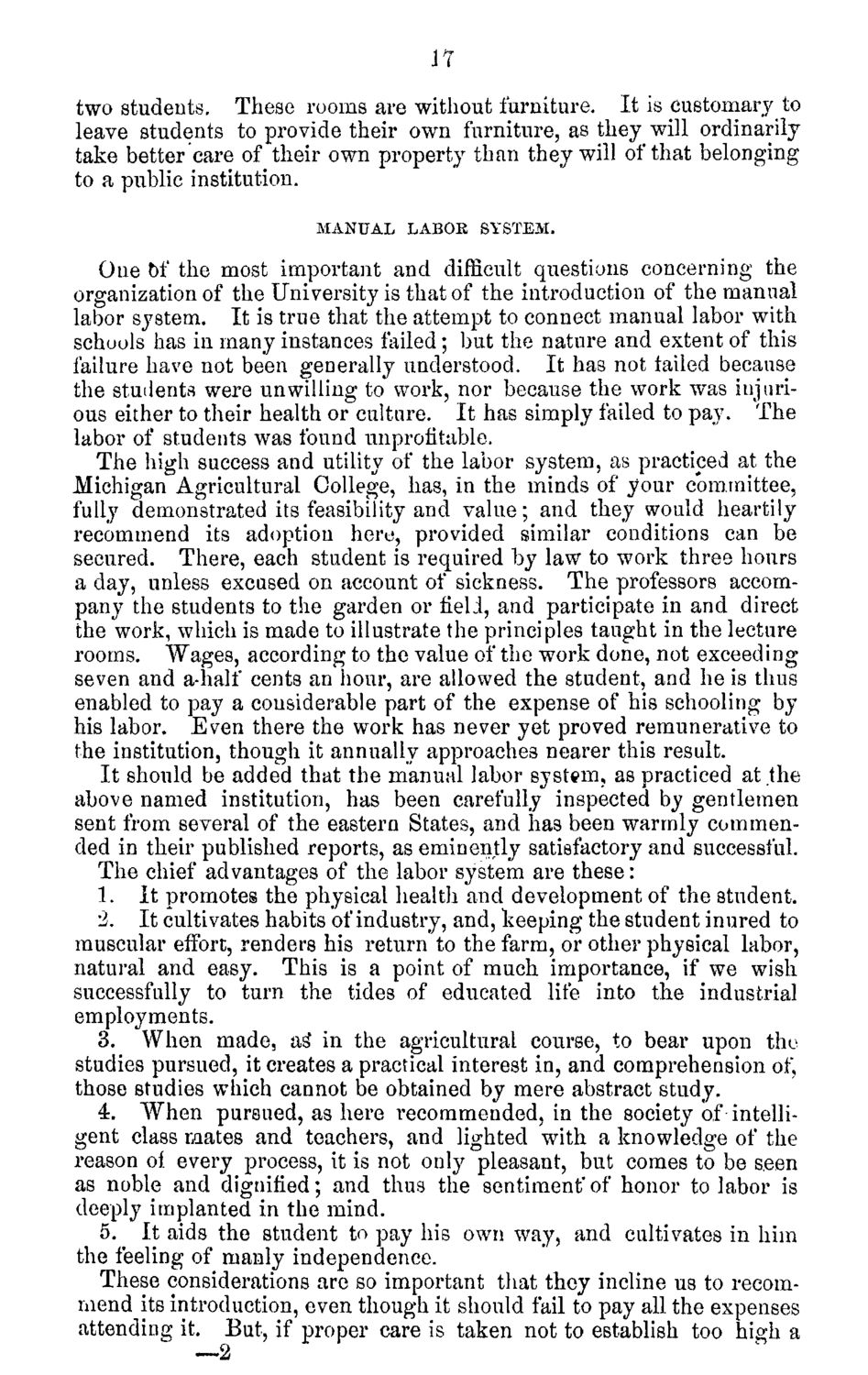| |
| |
Caption: Course Catalog - 1867
This is a reduced-resolution page image for fast online browsing.

EXTRACTED TEXT FROM PAGE:
17 two students. These rooms are without furniture. It is customary to leave students to provide their own furniture, as they will ordinarily take better care of their own property than they will of that belonging to a public institution. MANUAL LABOE SYSTEM. One bf the most important and difficult questions concerning the organization of the University is that of the introduction of the manual labor system. It is true that the attempt to connect manual labor with schools has in many instances failed; but the nature and extent of this failure have not been generally understood. It has not tailed because the students were unwilling to work, nor because the work was injurious either to their health or culture. It has simply failed to pay. The labor of students was found unprofitable. The high success and utility of the labor system, as practiced at the Michigan Agricultural College, has, in the minds of your committee, fully demonstrated its feasibility and value; and they would heartily recommend its adoption here, provided similar conditions can be secured. There, each student is required by law to work three hours a day, unless excused on account of sickness. The professors accompany the students to the garden or fieli, and participate in and direct the work, which is made to illustrate the principles taught in the lecture rooms. Wages, according to the value of the work done, not exceeding seven and a-half cents an hour, are allowed the student, and he is thus enabled to pay a considerable part of the expense of his schooling by his labor. Even there the work has never yet proved remunerative to the institution, though it annually approaches nearer this result. It should be added that the manual labor system, as practiced at the above named institution, has been carefully inspected by gentlemen sent from several of the eastern States, and has been warmly commended in their published reports, as eminently satisfactory and successful. The chief advantages of the labor system are these: 1. It promotes the physical health and development of the student. 2. It cultivates habits of industry, and, keeping the student inured to muscular effort, renders his return to the farm, or other physical labor, natural and easy. This is a point of much importance, if we wish successfully to turn the tides of educated life into the industrial employments. 3. When made, as" in the agricultural course, to bear upon the studies pursued, it creates a practical interest in, and comprehension of, those studies which cannot be obtained by mere abstract study. 4. "When pursued, as here recommended, in the society of intelligent class mates and teachers, and lighted with a knowledge of the reason of. every process, it is not only pleasant, but comes to be seen as noble and dignified; and thus the sentiment'of honor to labor is deeply implanted in the mind. 5. It aids the student to pay his own way, and cultivates in him the feeling of manly independence. These considerations are so important that they incline us to recommend its introduction, even though it should fail to pay all the expenses attending it. But, if proper care is taken not to establish too high a
| |